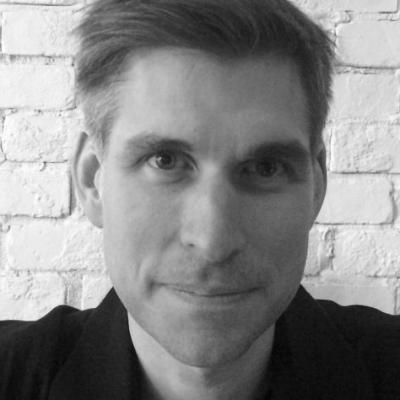Dr. Derek Gladwin received his PhD from the University of Alberta and is currently a postdoctoral fellow in the English department in the Faculty of Arts.
Each year, two outstanding postdoctoral fellows are selected as recipients of the Killam Postdoctoral Fellow Research Prize. Nominated by their faculties, the Killam PDF Prizes are awarded to full-time postdoctoral fellows in recognition of their outstanding research and scholarly contributions. Dr. Derek Gladwin, a 2016 prize recipient, talks about his research goals, his UBC experience, and what winning the Killam PDF Research Prize means to him.
What do you hope to accomplish with your current work?
My initial goal at the beginning of my SSHRC Postdoctoral Fellowship was to eventually publish the research project as a monograph so that it would reach a wider audience. Fortunately, my project is now under contract with the Environmental Humanities series at Routledge and will be published as a book in 2018. I also wanted the opportunity to collaborate with international research groups working in the environmental humanities. Over the past two years, I served as a Visiting Research Fellow in the Environmental Humanities in The Institute for Advanced Studies in the Humanities (IASH) at the University of Edinburgh, and as a Flaherty Visiting Research Fellow in the Centre for Environmental Humanities at Trinity College Dublin.
What research-related or academic event coming up in the near future are you most excited about?
In terms of an academic event, I was invited to give the Featured Keynote talk titled “Petro-Spaces in the North Sea” at the 2017 “You Are Here: An Interdisciplinary Conference on Place, Space, and Embodiment” hosted by Creighton University in Omaha, Nebraska. For a research event, I will be speaking at an international symposium titled “Peatlands in the 21st Century: trans-disciplinary perspectives on heritage, sustainability and ‘wise use’ of resources” at University College Cork in Ireland. Funded by the Irish Research Council (IRC) through the Government of Ireland in 2017, this internationally collaborative effort focuses on global peatland environments to develop interdisciplinary frameworks aimed at addressing issues around the value and “wise use” or “resources” in the context of anthropogenic climate change. I was one of the co-applicants from Canada, along with others in Ireland and the Netherlands.
Research topic
Research Description
This SSHRC-funded postdoctoral research project analyses how contemporary literature, film, and media confronts ecological crises through perspectives of spatial justice – a facet of social justice that looks at unjust circumstances as a phenomenon of space and geography. Growing responses to the inequitable distributions of space as a result of water pollution, pipeline construction, oil spills, or droughts, suggest an urgent need to re-examine the ways humans understand, use, and live in social and geographical spaces in the twenty-first century. Largely drawing from spatial and ecological methodologies, this project contends that because space is socially as well as geographically produced, then literary and visual culture can construct and influence both real and perceived geographies to combat various forms of spatial injustices that result in environmental destruction. Focusing on Britain and Ireland, this research examines spatial injustices related to fossil fuels and climate change in print and visual texts that include novels, poetry, drama, film, media, and performance. This work contributes to recent debates in the environmental humanities by focusing on what the philosopher Glenn Albrecht has termed “solastalgia” – a feeling of homesickness caused by environmental damage in the places people live – in the ways literary and visual texts have documented the ecological effects of the loss of place. Resisting spatial injustices related to environmental distress is not only relegated to politics and legislation. Resistance includes responses within the humanities and the many ways artistic production can permeate the lives of people and influence social change.
Why did you decide to pursue a postdoctoral fellowship at UBC? Did you consider other opportunities?
Some of the reasons I chose UBC include: its international reputation as a Canadian research university, its commitment to the study of Society, Culture, and Globalization as part of its Strategic Plan, and its Sustainability Initiative that emphasizes research and teaching on social and environmental sustainability. In addition, the Department of English houses internationally recognized scholars working in environmental and spatial theory. One person in particular is my postdoctoral supervisor Dr. Miguel Mota, whose scholarship on British print and visual texts explores, in part, the social relations of space and politics.
What advice do you have for new postdoctoral fellows?
In addition to utilizing the fruitful resources that UBC has to offer, make sure to explore other cultural, social, and academic events in Vancouver, such as visiting the museums, attending events at other universities, and exploring cultural events throughout the lower BC mainland.
What is the most enjoyable aspect of your postdoctoral fellowship?
What surprised me the most was all of the local and international events held in Vancouver (and UBC). Despite the geographical isolation of Vancouver, it afforded many opportunities to attend international conferences, workshops, book launches, art exhibits, and lectures.
What does receiving this award mean for your career?
Winning this award has been an honour and a prized achievement for me. In particular, with only two postdoctoral fellows selected each year at UBC, I am pleased to represent the Faculty of Arts. Linking the environmental humanities and geography together, my interdisciplinary research represents a collaborative effort that emphasizes the value of the Arts in society. My hope is that by winning the 2016 Killam PDF Prize it has reinforced the significance of the Arts as an integrative and formidable element of university research.
